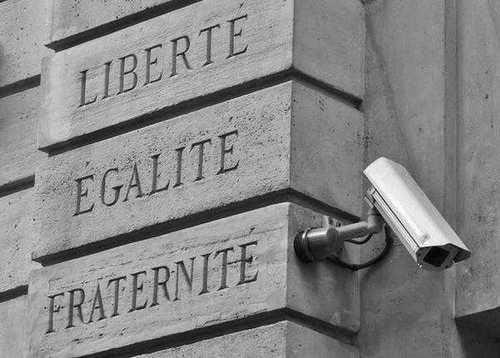Last week the French National Assembly — the lower chamber of the French Parliament — adopted a Surveillance Bill that would enable mass surveillance of international phone calls and allow the government tap French undersea cables to vacuum up all internet traffic.
The bill — called projet de loi sur la surveillance des communications internationales — is an attempt to repackage a clause from the Intelligence Act (a.k.a. the French Patriot Act) that was declared unconstitutional over the summer. Now that the surveillance bill has been adopted in the lower chamber, it will be considered by the French Senate, which is set to vote at the end of October. Access strongly opposes this bill, and along with several dozen other NGOs and digital rights groups, we sent an open letter to members of the French Parliament to articulate our concerns.
Specifically, we point out that the bill institutionalises privacy infringement globally, provides limited independent oversight, and is disproportionate in the scope of data collected on phone and internet communications to and from France. Further, the bill introduces excessive and unjustified data retention mandates, for periods of up to eight years. This appears to be in direct contradiction with the Court of Justice of the European Union’s ruling in April 2014 that invalidated the Data Retention Directive.
The bill was introduced by two French members of the Parliament, Patricia Adam and Philippe Nauch, who argued that these overarching surveillance measures are essential to guarantee so-called French interests that cannot be protected through domestic surveillance alone. The two Parliamentarians however neglected to mention the fact that French intelligence services already have been and continue to conduct mass surveillance in many foreign countries, relying on a secret executive order that was revealed by the French media last year.
Perhaps the most ironic aspect of this push for legislated privacy violations is that the French government expressed so much outrage earlier this year when Wikileaks revealed the U.S. National Security Agency’s espionage of France’s leaders. This became an international scandal that lasted for months and heavily strained European-US relations.
This bill is not the first of its kind in France, as it follows the afore-mentioned Intelligence Law, which is now being challenged in a case filed with the European Court of Human Rights by French journalists. Under this law, the DGSE — the French intelligence agency — can monitor the phone calls and emails of anyone in France without judicial approval, and install black boxes at internet service providers to record people’s internet activities and collect their metadata. Together, these two pieces of legislation foreshadow a terrifying future for France’s digital policy.
While we’re glad that the Intelligence Law will now face scrutiny at the European Court of Human Rights, it is far better not to pass these kinds of privacy-invasive laws in the first place. There’s still time to stop the surveillance bill. The French Senate is scheduled to vote on the bill on October 27. We urge you to join us in opposing this disproportionate and discriminatory bill.
